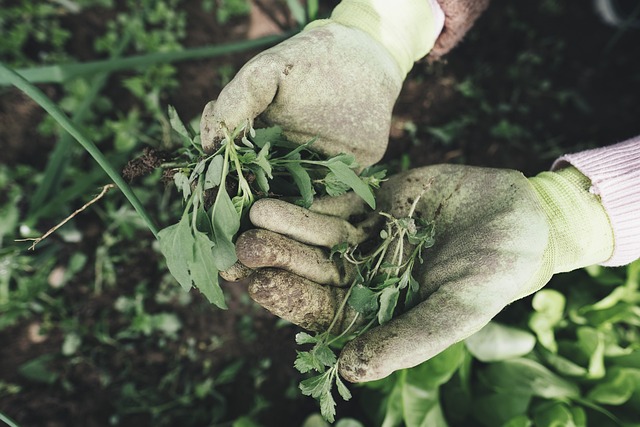2023 has brought significant attention to THCA (tetrahydrocannabinolic acid), a non-psychoactive compound found in cannabis, especially due to its therapeutic potential. In Alaska, THCA is legal and has been gaining traction for its anti-inflammatory and neuroprotective properties that may offer health benefits without the psychoactive effects associated with THC. Users have reported these benefits, which are under scientific investigation for conditions like arthritis and neurological disorders. The 2018 Farm Bill also allows for hemp-derived products, including THCA, to be legally sold nationwide, provided they contain less than 0.3% THC by dry weight. As interest in THCA continues to rise, consumers are encouraged to follow state and local laws, as well as consult healthcare professionals before using THCA flower for health purposes. The evolving landscape of cannabis research, particularly in Alaska, highlights the importance of understanding both the potential benefits and legal considerations surrounding THCA use.
Exploring the multifaceted world of cannabinoids, this article sheds light on THCA flower, a non-psychoactive precursor to THC found within the cannabis plant. With its legal status firmly established in Alaska, users are increasingly curious about its potential benefits and side effects. From its emerging role in cannabis use to understanding its legal landscape, this article delves into the nuances of THCA flower consumption, highlighting its psychoactive properties, respiratory and gastrointestinal impacts, and interactions with other substances. We will navigate dosage and tolerance, explore the entourage effect, and discuss user experiences, all while emphasizing the importance of safety and quality in sourcing this product legally within Alaska. This comprehensive guide aims to provide a well-rounded perspective on THCA flower, ensuring readers are well-informed about both its advantages and potential adverse effects.
- THCA Flower and Its Emerging Role in Cannabis Use
- Understanding THCA: The Precursor to THC
- THCA Legal Status in Alaska: A Legal Landscape Overview
- Potential Benefits of THCA Flower Consumption
THCA Flower and Its Emerging Role in Cannabis Use
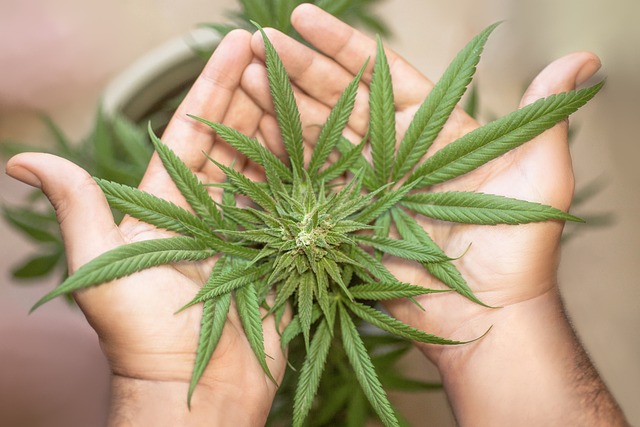
THCA, or Tetrahydrocannabinolic Acid, is a non-psychoactive cannabinoid found in raw cannabis plants, which, when heated, converts into the well-known psychoactive compound THC. As research continues to unfold, THCA is gaining attention for its potential therapeutic properties and its legal status in certain regions, such as Alaska. In Alaska, where the cultivation and possession of THCA flower are legal under state law, users are exploring its benefits without the immediate psychoactive effects associated with THC. Studies suggest that THCA may offer anti-inflammatory, analgesic, and neuroprotective properties, making it a subject of interest for those seeking alternative health remedies. The emerging role of THCA in cannabis use is piquing the curiosity of both researchers and consumers, particularly as it relates to its potential to alleviate symptoms without the psychoactive side effects typically associated with cannabis consumption. As interest in cannabinoids grows, so does the demand for clear understanding and regulation of these compounds, highlighting the importance of ongoing research and legal considerations within states like Alaska, where the landscape for cannabis use is continuously evolving. Users interested in exploring the benefits of THCA should approach it with caution, adhering to local laws and consulting healthcare professionals before incorporating it into their wellness routines.
Understanding THCA: The Precursor to THC
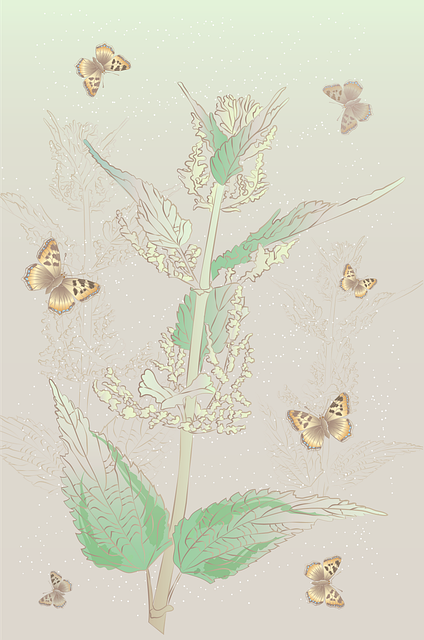
Cannabidiolic acid (THCA) is a non-psychoactive compound found in cannabis plants, which serves as the precursor to delta-9-tetrahydrocannabinol (THC), the primary psychoactive element in marijuana. As research continues to unfold the myriad effects of cannabinoids, THCA has garnered attention for its potential therapeutic properties without the psychoactive impact associated with THC. In this context, understanding THCA is crucial for those exploring the medicinal benefits of cannabis, particularly in regions like Alaska where THCA’s legal status mirrors that of THC. Alaskan legislation permits the use of THCA-rich products, reflecting a progressive stance on cannabinoid research and application. Consumers interested in the potential health advantages of THCA may find products derived from hemp with less than 0.3% THC to be legally accessible, as per the 2018 Farm Bill. This has led to a burgeoning market for THCA-focused wellness products, which are being studied for their anti-inflammatory, neuroprotective, and potentially analgesic properties. As with any substance, it is imperative for individuals to consult healthcare professionals before incorporating THCA into their regimen, especially considering the varying legal landscapes and potential side effects that may arise from its use.
THCA Legal Status in Alaska: A Legal Landscape Overview
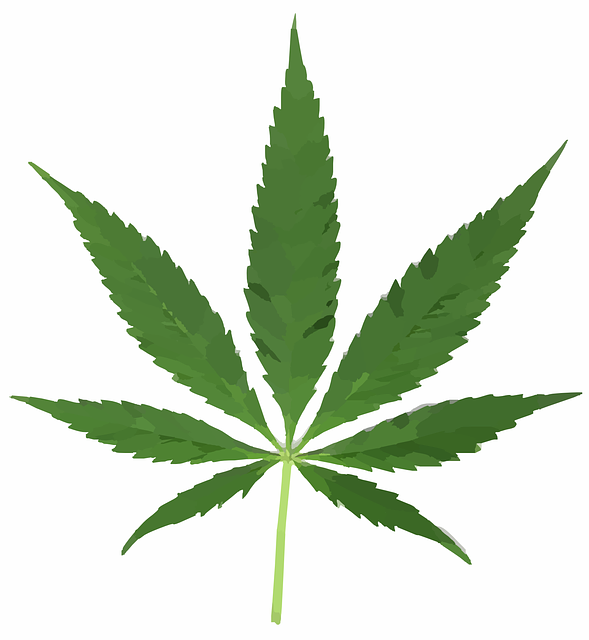
In Alaska, the legal status of THCA, or Tetrahydrocannabinolic Acid, a non-psychoactive precursor to the well-known THC found in cannabis, is subject to the state’s evolving regulations. As of the knowledge cutoff date in early 2023, Alaska has embraced a progressive stance on cannabis and its derivatives, including THCA. The Alaska Marijuana Control Board oversees the cultivation, processing, and sale of cannabis and its products, allowing for a regulated market where adult residents can possess, grow, and use cannabis for recreational purposes. THCA flower, in its raw form, is legal under this framework, provided it is derived from hemp compliant with the 2018 Farm Bill and contains less than 0.3% THC by dry weight. Users in Alaska can legally purchase and possess THCA flower, which is often sought after for its potential wellness benefits and lack of psychoactive effects when consumed in its raw form. However, it’s important to stay updated on local regulations as they can change, and different municipalities within the state may have their own ordinances regarding cannabis-related products. Users should always ensure that they are compliant with both state and local laws when using or purchasing THCA flower in Alaska.
Potential Benefits of THCA Flower Consumption
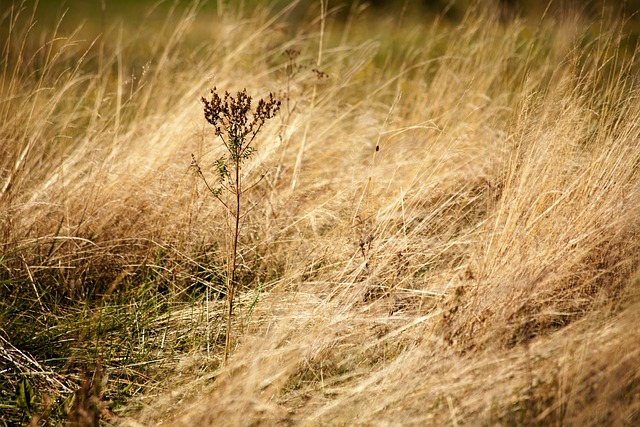
THCA, or tetrahydrocannabinolic acid, is a non-psychoactive cannabinoid found in the cannabis plant that has garnered attention for its potential therapeutic properties. As of my knowledge cutoff in 2023, THCA is legal in Alaska, allowing residents to explore its benefits legally. Consumers of THCA flower have reported a variety of potential health benefits, with a notable focus on its anti-inflammatory and neuroprotective effects. Preliminary studies suggest that THCA may help alleviate pain and inflammation, making it a candidate for managing conditions like arthritis without the psychoactive effects associated with its decarboxylated form, THC. Additionally, research indicates that THCA might offer neuroprotective benefits, which could be beneficial for individuals suffering from neurological disorders. Its potential to promote appetite and reduce nausea is also a significant advantage, particularly for patients undergoing treatments like chemotherapy. The legal status of THCA in Alaska provides a unique opportunity for residents to experiment with its various applications, contributing to the growing body of anecdotal evidence that supports its therapeutic potential. As with any supplement or medication, it is advisable to consult healthcare professionals before incorporating THCA flower into one’s health regimen, especially given the evolving legal landscape and the need for further scientific research to fully understand its effects.
In conclusion, the emergence of THCA flower as a significant component within the cannabis landscape, particularly in Alaska where its legal status is clear and defined, underscores a growing interest in its potential benefits. As evidenced throughout this article, understanding THCA’s role as the precursor to THC and its unique properties offers a promising outlook for those exploring alternative wellness options. While the therapeutic advantages of THCA flower are subject to ongoing research, its legal standing in Alaska provides a clear framework for its use within the state’s regulatory confines. Prospective users should approach its consumption with due consideration and consult health professionals as necessary. With the legal landscape evolving, it is an exciting time for further exploring the potential of THCA flower and its contributions to cannabis use.
